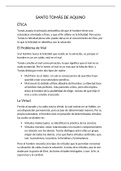IB Psychology IA HWW224
AN EXPERIMENT INTO THE EFFECT OF LEADING QUESTIONS ON MEMORY
May 2020 Examination
Submission Date: 22/11/2019
Word Count: 2200
HWW224
HWW229
HWW235
1
,IB Psychology IA HWW224
TABLE OF CONTENTS
I.Introduction 3-5
II. Exploration 5-7
A. Procedure 5
B. Research Design 5
C. Sampling Method 6
D. Participants 6-7
E. Control Variables 7
F. Materials 7
III. Analysis 8-9
IV. Evaluation 9-11
V. References 11-13
VI. Appendices 13
A. Informed Consent Form 13
B. Debrief Form 14
C. Video Resource 15
D. Standardised Instructions 15-16
E. Survey Condition 1 16
F. Survey Condition 2 16
G. Raw Data 16-17
H. Processed Data 17-18
2
, IB Psychology IA HWW224
I. INTRODUCTION
As crime rates soar across the UK (Schraer, 2010) more people are witnessing crime and
being asked to provide eyewitness testimonies to the police. Eyewitness testimonies are legal
accounts given by an individual who has witnessed an event by sight; although individuals
may see their eyewitness testimony as being accurate, leading questions asked by the police
can greatly impact what they remember. Since memory is often unreliable and susceptible to
manipulation (Cherry, K. 2019) research has been done to investigate its reliability at a
cognitive level. Leading questions can be asked by simply changing one word in a sentence,
editing how it impacts an individual’s cognition and often manipulating their memory of an
event. If an individual hears a word with associated schema which are“complete mental
pictures of how things are expected to be” (StudyLib.Net, 2019), then that may lead to
schema driven errors. Schema driven errors in eyewitness testimonies are errors caused by an
individual's representations of events, people and figures and are often influenced by: past
experiences, assumptions and stereotypes.
Bartlett’s theory of reconstructive memory helps to provide a greater picture as to why
eyewitness testimonies can be unreliable (Crane, 2019) . According to his theory, memory
recall can be subject to an individual's personal interpretation of events, in the event of an
eyewitness testimony, recall is subject to the interpretation of leading questions. Bartlett
referred to the mental pictures determining interpretation of events as schema which may be
determined by social values so can differ between individuals. If an individual has gaps in
their memory, they use their schema surrounding the event to reconstruct their memory, a
process which is often unreliable.
3
AN EXPERIMENT INTO THE EFFECT OF LEADING QUESTIONS ON MEMORY
May 2020 Examination
Submission Date: 22/11/2019
Word Count: 2200
HWW224
HWW229
HWW235
1
,IB Psychology IA HWW224
TABLE OF CONTENTS
I.Introduction 3-5
II. Exploration 5-7
A. Procedure 5
B. Research Design 5
C. Sampling Method 6
D. Participants 6-7
E. Control Variables 7
F. Materials 7
III. Analysis 8-9
IV. Evaluation 9-11
V. References 11-13
VI. Appendices 13
A. Informed Consent Form 13
B. Debrief Form 14
C. Video Resource 15
D. Standardised Instructions 15-16
E. Survey Condition 1 16
F. Survey Condition 2 16
G. Raw Data 16-17
H. Processed Data 17-18
2
, IB Psychology IA HWW224
I. INTRODUCTION
As crime rates soar across the UK (Schraer, 2010) more people are witnessing crime and
being asked to provide eyewitness testimonies to the police. Eyewitness testimonies are legal
accounts given by an individual who has witnessed an event by sight; although individuals
may see their eyewitness testimony as being accurate, leading questions asked by the police
can greatly impact what they remember. Since memory is often unreliable and susceptible to
manipulation (Cherry, K. 2019) research has been done to investigate its reliability at a
cognitive level. Leading questions can be asked by simply changing one word in a sentence,
editing how it impacts an individual’s cognition and often manipulating their memory of an
event. If an individual hears a word with associated schema which are“complete mental
pictures of how things are expected to be” (StudyLib.Net, 2019), then that may lead to
schema driven errors. Schema driven errors in eyewitness testimonies are errors caused by an
individual's representations of events, people and figures and are often influenced by: past
experiences, assumptions and stereotypes.
Bartlett’s theory of reconstructive memory helps to provide a greater picture as to why
eyewitness testimonies can be unreliable (Crane, 2019) . According to his theory, memory
recall can be subject to an individual's personal interpretation of events, in the event of an
eyewitness testimony, recall is subject to the interpretation of leading questions. Bartlett
referred to the mental pictures determining interpretation of events as schema which may be
determined by social values so can differ between individuals. If an individual has gaps in
their memory, they use their schema surrounding the event to reconstruct their memory, a
process which is often unreliable.
3


